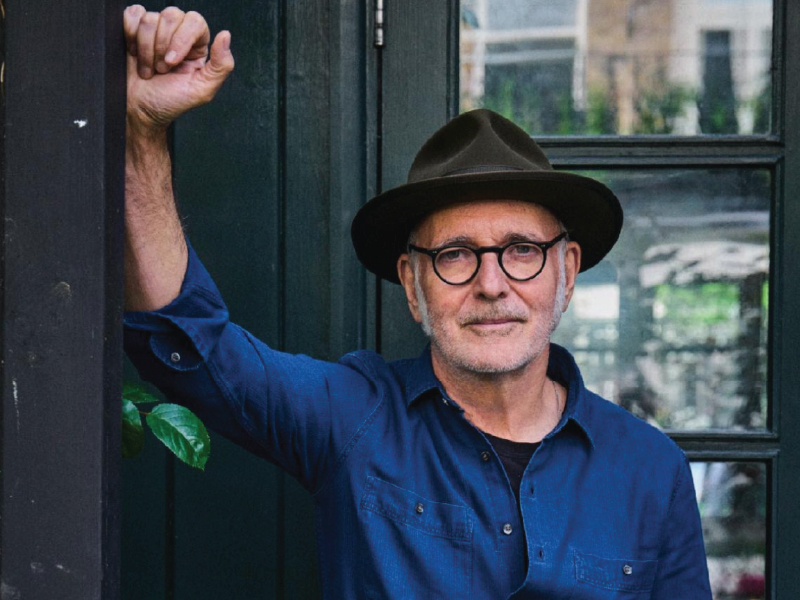
Times are changing, and we’ve seen incredible progress from the internet age to social media and now A.I. With these rapid changes, younger millennials and Gen Z are given a unique perspective on life. Late Bloomers taps into the emotions of growing up and getting older in raw, real, and powerful ways. Anna Greenfield’s script, brought to life by director Lisa Steen, tells us that it’s okay not to bloom or flourish. Life throws everything at us at once, and nobody prepares us for it. This isn’t just another coming-of-age story—it’s a brutally honest look at aging.
Louise (Karen Gillan) is 28, jobless, single, and deeply depressed. After a drunken accident lands her in the hospital with a broken hip—an injury usually reserved for the elderly—she’s forced to confront her mortality. Her situation shifts when she meets Antonina (Margaret Sophie Stein), a Polish immigrant with her own set of struggles. Their unlikely friendship helps them both navigate the brutal realities of life.
Gillan shines, elevating the film beyond a typical indie drama. Her chemistry with Margaret Sophie Stein is a great pairing in the movie. Margaret’s role as Antonina brought the best out of Karen and gave that thematic connection of old and young. She barely spoke, and when she did in her native tongue, you could feel her emotions through her eyes and the way she stared at Karen. Their bond, despite the language barrier, adds a deeply emotional layer to the film.
Interview with the Cast, Director and Screenwriter
I had the chance to speak to Actress Karen Gillan, Director Lisa Steen, and Writer Anna Greenfield about the thought process behind the film and how they navigated on creating this heartfelt story.
1. Karen, you’re known for roles like Nebula in the MCU, which are quite different from the grounded vulnerability of Louise. What drew you to this role, and were there any unique challenges or rewards in exploring this emotional territory?
Karen: “Oh, so many things drew me to the role. I think I really understood her straight away. That’s a testament to, his writing. I felt like it was an opportunity to do something that I haven’t really done before, which is unleash my own personality a little bit more like she’s a mess of a character, and she does the wrong thing all the time. We still love her when you read the script. And so I was like, I feel like this is something where I can really, like, bring my own personality traits into this story and kind of make them work for this. So someone like Nebula, which is very kind of, you know, constrained, and just a completely different vibe. This was like a sort of explosion of, of my own personality traits combined with this character.”
2. Louise is described as “adrift” and grappling with her identity. In what ways did you connect with Louise’s journey, and were there any personal experiences you drew upon to bring her to life? Did the themes of delayed adulthood or grappling with self-worth resonate with you?
Karen: “You know, I always draw on my own personal experiences. I’ve never been through what this character has been through in this story, but I think in order to make it authentic, it’s always a case of finding a way. My process involves thinking, ‘Okay, I’ve never experienced that, but what’s the emotion the character is feeling from that?
When I identify an emotion the character is feeling, I recall a time when I felt that same emotion and channel it while performing. Additionally, we had Anna, who was an amazing resource because she wrote the script and it’s her story. I was able to sit down with her, listen, and absorb all of her mannerisms. And then turn them into my own little weird hybrid.”
3. For Anna, the story is inspired by your personal experiences. Could you share a bit about the specific events or emotions that sparked the idea for the screenplay? I think the journey that sparked this screenplay of yours is fascinating. Could you elaborate on that?
Ana: “Yeah, in broad strokes, the emotional journey was that I was in my late 20s and went through a really bad breakup at the same time my mom was diagnosed with dementia. She was living on the West Coast. I was on the East Coast, and I was also just kind of a messy person, like, you know, telling people that I loved them in bars and riding my bike on the bridge in winter, thinking that was charming instead of really dangerous. So, yeah, it was just true to that period of life where some really big things were happening.
I was going through a lot of emotions, but I wasn’t actually processing them in a mature way. I needed to step up to the plate. I needed to be there for my family and be more present, but I was struggling to do that. It was really intense to see my mom go through something at an early age that most of us might see our grandparents go through. So, yeah, those experiences were all very real. I think the only thing that’s not very real in the script is the friendship between the elderly woman Antonina and Louise. I had no friends during that time. Oh, no, I had friends my age, but I didn’t have any older friends.”
Did you actually fall of the balcony?
Ana: (laughs) “No! Also, that’s not true…Okay, I just slipped going to the grocery store on ice, which is actually very old for something to do. No, she’s, like stalking. She’s weird. That character, she’s, like, stalking her ex. Falls off the porch. No, no, no, not me man. Oh, my gosh hahaha!”
5. For Lisa Steen (Director), How did your collaboration with shape the story and characters? Were there any significant changes made from your original screenplay to the final film, and how did you feel about those changes?
Lisa: “I mean, I’ve known Anna since college, so that was great because I knew this character andI was across the country when all this was happening to her. But, you know, I know how she navigates these things. And, yeah, we have been working together for years, so we have a very good shorthand on set. Also, the cinematographer, John, has worked with us for so long that we can just give a look and know what we’re talking about.
But it was great to have her on set for all this because we can draw from exactly those experiences. And I wanted the character to be authentic to Anna, but I also wanted Karen to be the character, too. So, you know, I didn’t want to basically mold Karen into Anna.”
Find the rest of the interview here:
Despite some might find this film simplistic in the age of CGI films, Late Bloomers excels in its execution, resonating with audiences who grapple with their own insecurities and fears. It’s a beautiful yet brutal film that underscores the potential in life’s fragility. It is keenly aware of its audience and knows exactly how to prod at the fears and insecurities that they similarly keep buried beneath brash words and prickly personalities, just like Louise. Gillan makes the role her own and elevates it beyond what it could have been with any other lead. Late Bloomers is as beautiful as it is brutal, and it drives home the potential in the fragility of life. There is also something equally poignant in the fact that Late Bloomers is intimately linked with the plights of women aging explored through Louise, her mother, Antonina, and the women in physical therapy. While men go through similar plights and illnesses while aging, women do experience all of it far more harshly—especially once they’re “past their prime.”
LATE BLOOMERS is out now, watch on PRIME Video, Youtube Movies, or Google Play
Photo credits: Courtesy of Melissa Barreto



